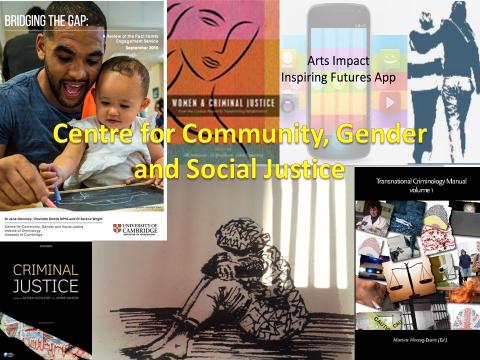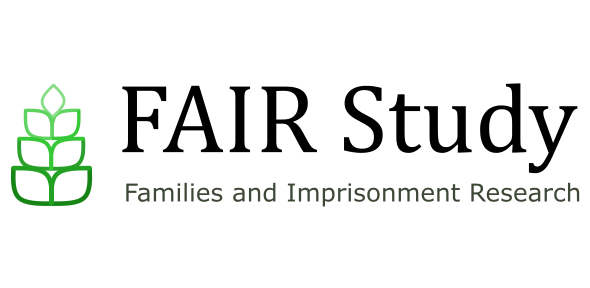
About the Study
This page summarises the rationale, aims and methods of the FAIR Study.
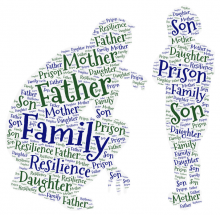
Background to the study
Over 50% of adult male prisoners in England and Wales have at least one child under the age of 18 and about 25% lived with their children before imprisonment (Ministry of Justice, 2012). Parental imprisonment is known to have a range of negative economic, social and emotional outcomes for families (see Lösel et al, 2012) however less attention has been paid to patterns of resilience in response to the substantial adversity that prisoners and their families often face.
The FAIR study will be the first longitudinal research project in Europe to investigate resilience processes in prisoners’ families using a whole-family approach. Its distinctive research design will allow investigation of the dynamic nature of resilience in families facing multiple stressors over time and will facilitate the testing and further development of a family-oriented model of resilience. The analysis will draw on an ecological resilience framework (Ungar, 2012) in order to capture multiple layers of influence on prisoners’ families’ experiences including political, social, economic and cultural factors. Particular emphasis will be given to protective functions of family relationships and support networks in the face of multiple risks to well-being (e.g. criminal activity, health problems, alcohol and drug addiction, school or employment problems, and breakdowns in relationships).
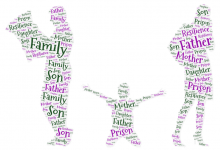 What is resilience?
What is resilience?
Resilience has been broadly defined as ‘the overcoming of a stress or adversity or a relatively good outcome despite risk experiences’ (Rutter, 2012). Specific definitions of resilience have more recently moved from a general trait of an individual, to a dynamic, multi-level social, psychological and biological process that can vary across individuals, problem types, time and circumstances (Cicchetti, 2010; Lösel and Farrington, 2012; Masten, 2007; Rutter, 2012). The FAIR study aims to develop a dynamic model of resilience in families affected by imprisonment that accounts for the variations in outcome found in families so far.
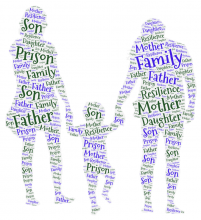 What are we studying?
What are we studying?
Our research objectives are:
1) To analyse the long-term interaction of risk and protective factors associated with resilience in families with previously imprisoned fathers.
2) To improve knowledge of the relationship between psychological, social and environmental mechanisms affecting the resilience of prisoners’ families.
3) To provide insight into the stability of resilience over time and discover what factors promote continuity versus change.
4) To investigate whether there is a dose-response relationship between the experienced adversity prisoners families experience, the personal and social resources available to them and their resilience.
5) To examine the role of formal and informal support and other resources that may foster resilience.
6) To identify the effects of criminal justice and social policies on resilience at the individual and family level.
7) To identify promising strategies for reducing adversity and enhancing resilience of families in similar vulnerable circumstances.
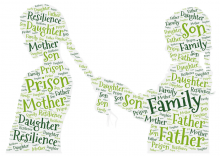 How are we conducting the research?
How are we conducting the research?
The research is a prospective longitudinal study of a panel of families who have experienced parental imprisonment. It is using a mixed method approach combining semi-structured interviews, standardised assessments and statistical data analysis.
The study takes advantage of our earlier project ‘Risk and protective factors in the resettlement of imprisoned fathers with their families’ financed by the Big Lottery Fund and run in collaboration with Ormiston Children and Families Trust. This was the first prospective longitudinal study in Europe to gather data from sets of parents and children during and after the father’s imprisonment. Using interviews and standardised questionnaires with fathers, (ex)partners and children between the ages of 4 and 18 years, the earlier study captured families’ experiences of imprisonment (Time 1) and resettlement shortly after the father’s release (Time 2). 54 families were interviewed at Time 1 and 40 families were interviewed at Time 2. Click here to read the full report from the earlier study.
For the current study, we plan to interview these families a third time, some six years after the second interviews, so that we will have data on their experiences over seven years (plus retrospective data on the family before the father’s imprisonment).
 References
References
Cicchetti, D. (2010). Resilience under conditions of extreme stress: A multi-level perspective. World Psychiatry, 9(3), 145–154.
Lösel, F., Pugh, G., Markson, L., Souza, K., Lanskey, C. (2012). Risk and protective factors in the resettlement of imprisoned fathers with their families. Milton: Ormiston Children's and Families Trust.
Masten, A.S. (2007). Resilience in developing systems: Progress and promise as the fourth wave rises. Development and Psychopathology, 19(3), 921–930.
Ministry of Justice. (2012). Prisoners’ childhood and family backgrounds: results from the surveying prisoner crime reduction (SPCR) longitudinal cohort study of prisoners. London: Ministry of Justice.
Rutter, M. (2012). Resilience as a dynamic concept. Development and Psychopathology, 24 (2), 335–344.
Ungar, M. (2012). Social ecologies and their contribution to resilience. In M. Ungar (Ed.), The social ecology of resilience (pp. 13-31). New York: Springer.


